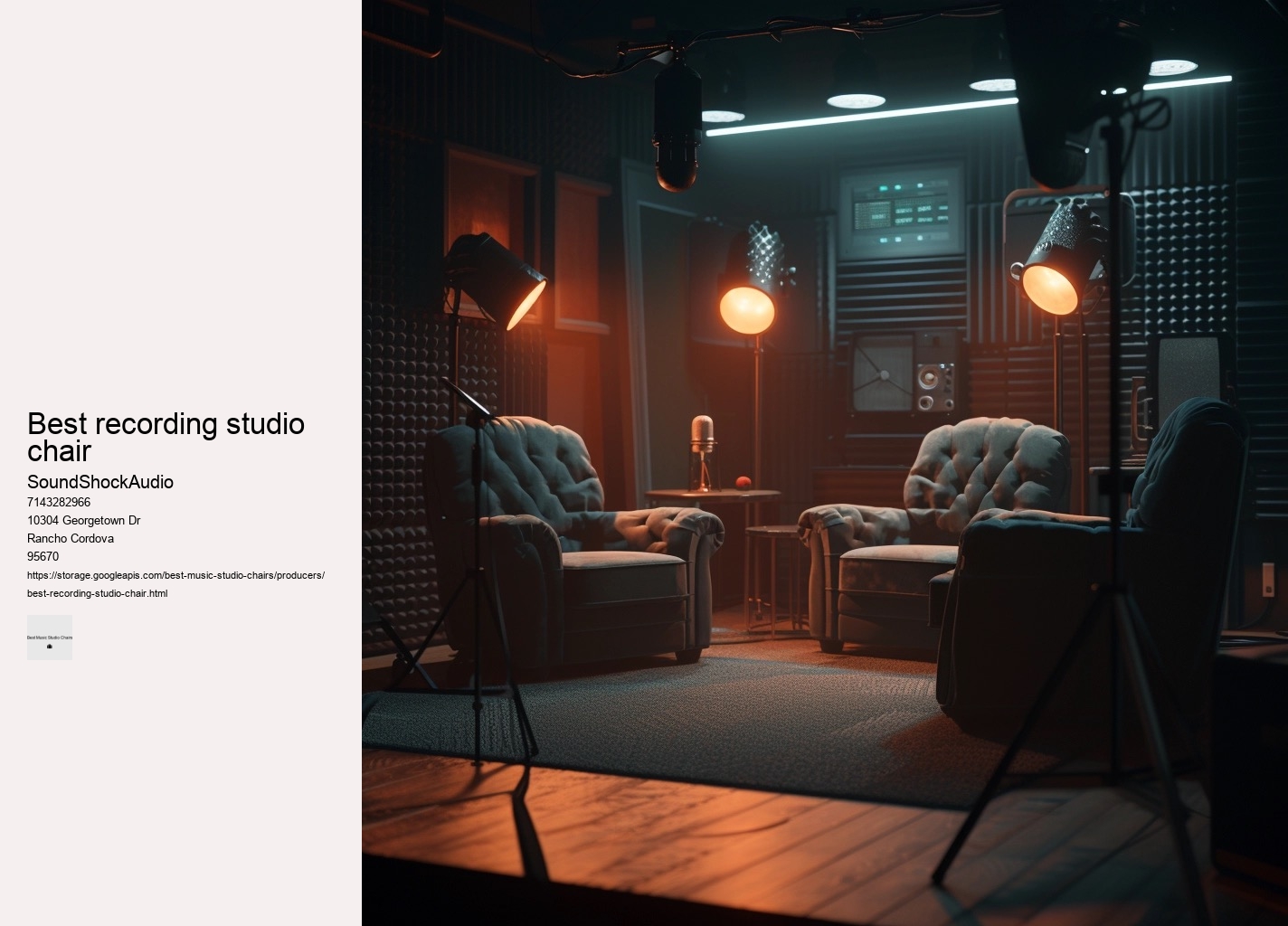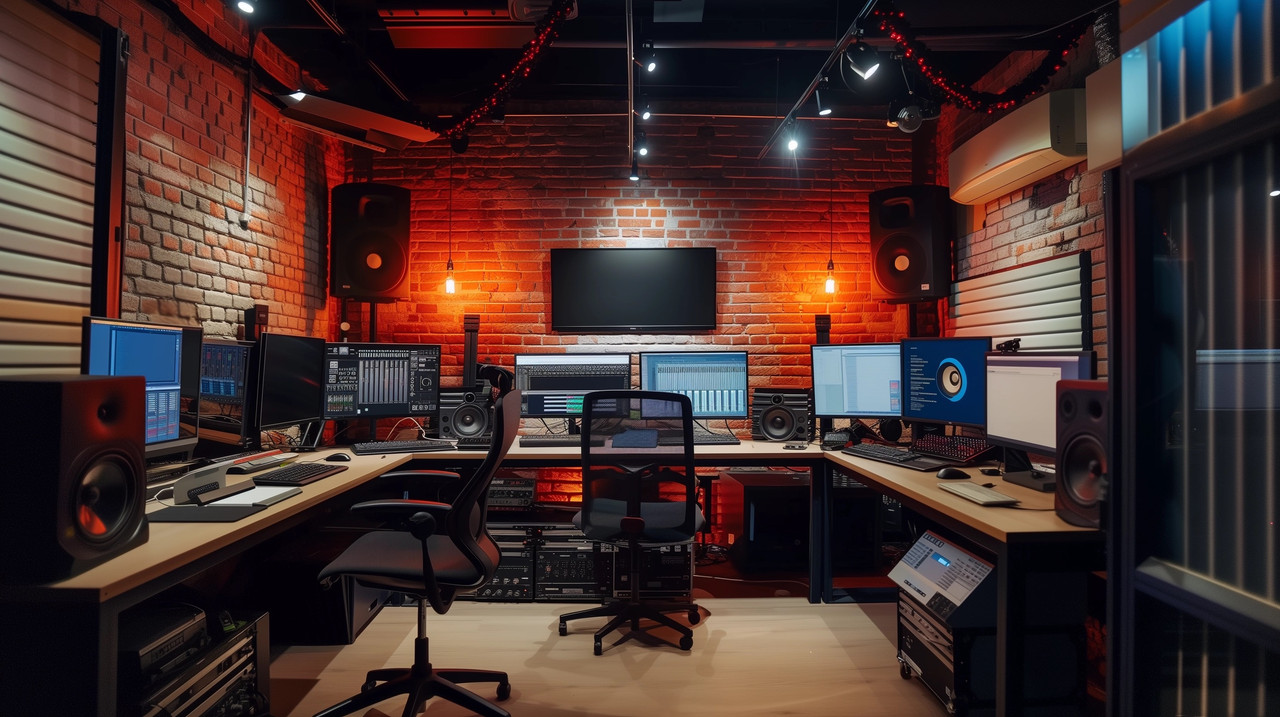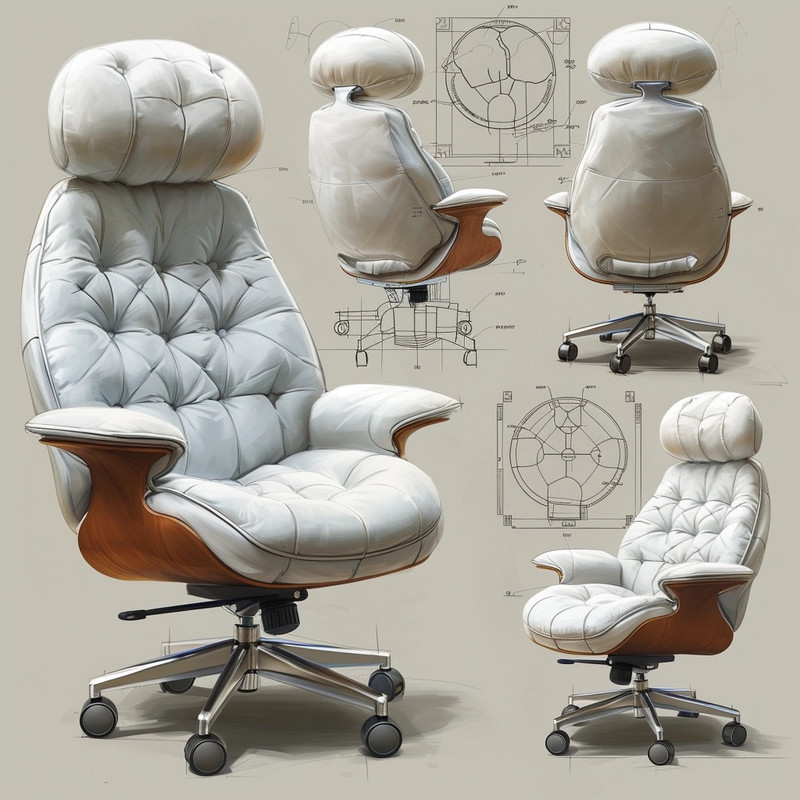

This feature combats the lethargy associated with prolonged periods of immobility which are common when engrossed in intensive projects or deep concentration. These elements work together seamlessly to accommodate shifts in posture whether leaning forward intently or reclining during contemplative moments. Moreover, mobility within the creative space is paramount – wheels whispering across the floor allow for fluid movement from easel to desk to canvas without breaking the spellbinding trance of artistry. Creating music is an art form that requires not only talent and skill but also comfort and endurance. ergonomic chair Finally, maintaining optimal health cannot be understated—hydration keeps vocal cords supple while regular breaks minimize mental fatigue and preserve focus.
In conclusion, as mixing down tracks is both artistry and endurance test combined; having an ergonomic chair becomes an essential tool in a producer’s studio arsenal. In conclusion, while losing ourselves in music production can be deeply satisfying both creatively and professionally, it's vital not just for our art but also for our physical health that we pay attention to what our backs might be missing out on during those long mixing sessions: movement variety; ergonomic support tailored specifically towards us as individuals; periodic rests allowing recovery times between intense focuses; plus ongoing maintenance through targeted exercises outside studio walls alongside professional therapeutic interventions when needed. Connectivity also plays an unpredictable role; imagine USB ports tucked subtly under armrests or Bluetooth functionality pairing with studio equipment wirelessly. Selecting the ideal chair for your music studio sessions may seem like a trivial detail amidst the complex array of electronic equipment, acoustic treatment, and instruments that typically garnish a studio space.
But simply owning an ergonomic chair isn't enough; you must also be mindful of how you use it. Another vital factor is durability and quality construction. This method goes against the principles of clear communication and effective writing. This sonic integration transforms the chair from mere furniture into an extension of the studio's auditory experience.
Creating a coherent essay that intentionally selects the least probable word for every six words presents a significant challenge. Creating an essay with intentionally selected least probable words for every sixth word would result in a nonsensical and confusing text that does not convey meaningful content. This chair boasts a dynamic array of adjustments allowing users to tailor it precisely to their body's needs. Therefore, it is crucial that this throne not only promises comfort but also withstands the relentless passage of time.
Mastering Marathon Mixes: How to Stay Comfortable with Top-Rated Studio ChairsWhen embarking on the arduous journey of mastering marathon mixes, comfort can often be the unsung hero that either propels you to new heights or leads to your downfall. The material clothing the chair demands thoughtful consideration. Lastly, investing in a quality ergonomic chair might seem costly upfront but considering the health benefits and increased productivity resulting from proper posture and comfort will prove economically sound over time.
For those who master soundscapes daily, investing in a high-quality chair isn't mere luxury—it's an essential component of their craft. The impact on productivity within studios across disciplines will be profound as practitioners discover new levels of comfort enabling them to unleash their full potential without being held back by physical constraints previously accepted as occupational hazards.
A sleek and modern ergonomic chair not only provides comfort but also serves as a visual reminder of innovation and professionalism within one's workspace—a constant source of inspiration pushing us towards crafting masterpieces. Consequently, this diminishes the risk of developing chronic pain which could prematurely end or interrupt prolonged studio sessions.
While they don't directly impact comfort or ergonomics, pleasing designs can inspire creativity—a subtle yet significant benefit for those working in creative fields. These tools enable workers to alternate between sitting and standing positions seamlessly throughout the day without interrupting workflow efficiency.
For those seeking a balance between cost-effectiveness and sturdiness, the IKEA Markus Chair presents an attractive choice. Your workspace should inspire you; if vintage vibes spark your creativity opt for retro-inspired designs; if modern minimalism fuels you go for sleek lines and neutral colors. In contrast, extended periods of inactivity, especially in positions that strain particular muscle groups or impose unnatural postures, can lead to various health complications.
Imagine a chair—an ordinary concept turned extraordinary by ergonomic wizardry—a throne for sound architects tirelessly weaving sonic tapestries through night's quiet hours. Ergonomics play a pivotal role when selecting a studio chair.
Investment in a high-quality studio chair is indeed investment in oneself – acknowledging that comfort need not be sacrificed at creativity’s altar but instead can coexist synergistically within one’s sacred workspace. Creating a pain-free recording experience is often likened to an art form, one where sound engineers and artists alike strive for perfection.
The adjustable armrests cater to various instrument playing heights, providing essential support for shoulders and arms. Another significant feature is lumbar support adjustability.


Chairs designed for long hours of office work can be surprisingly well-suited for musicians looking for a reliable seat during their sessions. Whether for painter's caverns, minstrel nests or weaver’s lairs, every stool must juggle twin enchantments." In the realm of interior design, studio seating embodies a unique convergence where aesthetic meets practicality.
Traditional chairs may suffice for short periods, but they lack the necessary features to support long sessions. Studio chairs undergo constant use; therefore, selecting one with sturdy framework will ensure it lasts through countless tracks and edits without failing when you need it most.
Leather exudes luxury and ages gracefully; mesh promises breathability for prolonged bouts at the easel or desk. Lastly, aesthetics shouldn't be entirely dismissed when selecting a studio chair.
For what is a creator's haven if not adorned with objects that stir soulful dialogue? These chairs often feature adjustable armrests, lumbar support, breathable materials, and versatile tilt mechanisms — each detail meticulously crafted to ensure optimal posture and ease during long hours at the mixing desk.
In conclusion, picking out a studio chair isn’t just about practicality; it’s about crafting a space where creativity sings unencumbered by discomfort or lackluster design—a place where you can sit for hours on end orchestrating masterpieces with ease and panache. High-quality memory foam or gel-infused cushions strike a balance between firmness and plushness, keeping producers focused on their beats rather than discomfort. Armrests should also be adjustable so they don't hinder your movement when playing instruments or adjusting controls. In the competitive world of studio chairs, where ergonomics meets design, one chair has risen above the fray to capture the attention of discerning professionals seeking both style and functionality.
Breathable fabrics prevent overheating during intense rehearsals while sturdy construction ensures stability when shifting positions or emoting passionately through a piece. Thirdly, examine materials as if they were genres of music. Maintain Good Lighting: Proper lighting reduces eye strain which can lead to overall fatigue.5.
A lesser-expected trait would be incorporating sound-enhancing capabilities directly into the chair itself—perhaps built-in speakers that deliver precise audio feedback without needing headphones constantly wrapped around one's head. Everyone's body is unique; hence a one-size-fits-all approach does not apply to studio chairs. Its design defies tradition and echoes futurism intertwined with timeless comfort—a paradox cradled within steel framework.
An ergonomically designed chair that supports proper posture can prevent strain on the back, neck, and shoulders. Ultimately, investing in an excellent studio chair elevates your music production environment. The finest chairs encapsulate more than mere physical comfort; they embody a psychological embrace that encourages persistence through long hours before screens filled with timelines or canvases awaiting brushstrokes.

By integrating these strategies into your daily routine alongside using an ergonomic chair, you create an environment conducive to sustained productivity without succumbing to exhaustion's grip. While aesthetic preferences evolve rapidly within creative fields, investing in timeless craftsmanship ensures that a top studio chair remains both functional and stylish across eras. At first glance, one might consider a studio chair simply as a vessel for seated support during long hours of work.
Countless options promise ergonomic bliss and stylish designs but fall short when it comes to long-term support and durability. ergolab stealth In specialty markets, chairs like Secretlab's Titan series cater explicitly to users who require exceptional stability alongside customizable features such as adjustable lumbar support pillows and 4D armrests – perfect for tailoring to one’s individual needs during long mixing or editing periods.
But what makes a studio chair essential for prolonged mix downs? They say silence speaks volumes; here it underlines productivity free from unnecessary interruption—a testament to thoughtful design embracing virtue of stealth.
These tactile choices are paramount in sustaining focus when external conditions fluctuate with whimsical abandon. Ergonomics is paramount; after all, what good is a chair if it cannot provide comfort over extended periods?
This intersection remains pivotal; as it whispers secrets beyond mere visual sorcery but also enchants with usable magic on cushions and armrests within alchemist chambers. Stress (biology) To truly beat fatigue and boost productivity, consider adopting these best practices:1. Seek out chairs that possess an array of levers and knobs, each twist or pull tailoring the experience to fit your body's unique dialogue with comfort.
Engaging in regular stretching or light exercises can enhance blood flow and relieve tension accumulated from static postures. Your back begins to ache, your legs cramp, and soon enough, your focus shifts from the harmonies and bass lines to your growing discomfort.
Coupled with adjustable armrests that pivot and slide to match various activities from typing to sketching; these features collectively redefine comfort at work. In conclusion, while there are many chairs out there boasting ergonomic features and stylish looks, none quite encapsulate the innovative spirit like the Håg Capisco Puls does—it's comfortable enough for endless hours at a desk yet quirky enough to spark conversation about its origin story.
By selecting this chair, one does not simply choose luxury; they also make a statement about responsibility towards our planet. Leather may exude luxury and status, but it can also trap heat—leading to discomfort during extended periods of use.
The frequency at which you should get a new chair depends on several factors including the quality of the chair, how much use it gets, and whether it still provides proper support and comfort. Generally, office chairs used on a daily basis might need to be replaced every 5 to 10 years. However, if you notice signs of wear and tear, such as sagging, squeaking, or diminished comfort and support, it might be time to consider getting a new chair sooner.
An ergonomic chair designed to provide proper support to the lower back and promote good posture is best for hip pain. These chairs often feature adjustable settings for height, backrest angle, and seat depth to ensure a comfortable fit that reduces strain on the hips. Additionally, chairs with a slight forward tilt can help maintain the natural curve of the spine, further alleviating pressure on the hips.
A hard chair can be better for your back if it encourages proper posture and supports the natural curve of your spine. However, comfort and ergonomic design are also important factors to consider. Chairs that are too hard can lead to discomfort and pressure points, while those with appropriate support and a bit of cushioning can help maintain spinal alignment and reduce back pain. Ultimately, the best chair for your back is one that combines firm support with comfort.
Ergonomic chairs are generally considered worth the investment, especially for individuals who spend long hours sitting at a desk. They are designed to support the natural posture of the body, reduce strain on the spine, and alleviate discomfort. Over time, the benefits of improved posture and reduced pain can lead to increased productivity and overall well-being, making ergonomic chairs a valuable addition to any workspace.
Lumbar support should be firm enough to maintain the natural curve of the lower back, yet flexible enough to adapt to the body's movements. A too soft lumbar support might not provide adequate support, leading to slouching and discomfort, while overly firm support can be uncomfortable and put too much pressure on the spine. Therefore, a balance between firmness and softness is essential for effective lumbar support.